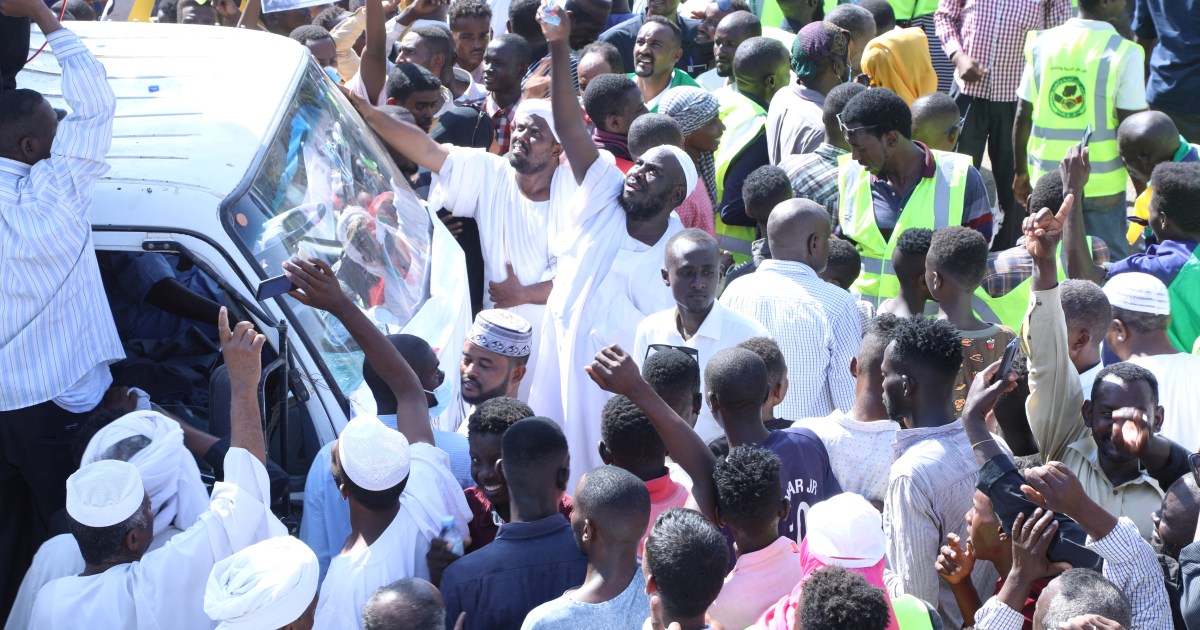Washington urged the transitional authority in Sudan to "respond to the will of the people," a day after demonstrations erupted in support of the government in exchange for a sit-in calling for its overthrow. Meanwhile, the governor of Darfur and a prominent leader in the National Charter wing of the Forces of Freedom and Change, Mona Arko Minawi, called on Prime Minister Abdullah Hamdok not to take sides. In the current crisis.
Minawi - who also heads the Sudan Liberation Movement - said that Hamdok should be prime minister for all the Sudanese people and not for a specific group, as he put it.
In the same context, the leader of the National Charter wing, Nour Al-Dayem Taha, called - when addressing the sit-in in front of the Republican Palace in Khartoum today, Friday - the group of the Central Council of the Forces of Freedom and Change to stop the "provocation" and attend the sit-in "for the interest of Sudan."
Taha insisted on continuing the sit-in until their demand to dissolve the government and expand the base of participation in managing the transitional period is achieved.
Taha added that if the government does not dissolve itself, "the street will solve it," and threatened that the National Charter group would go to Sudan TV tomorrow if the other party did not come.
The protesters today performed Friday prayers in the vicinity of the Republican Palace, where they have continued their open sit-in since last Saturday to demand the dissolution of Hamdok's government and its replacement with a government of competencies and the formation of the Transitional Legislative Council and the Constitutional Court.
The Friday preacher, Muhammad Fadlallah Muhammad Zain, called on the protesters to preserve the unity of Sudan, renounce racism, strive for reconciliation, and gather the Sudanese on one word.
A government solution "is not on the table"
On the other hand, the group of the Central Council of the Forces of Freedom and Change said that the issue of dissolving the government is not on the table and called on the head of the Sovereign Council, Lieutenant-General Abdel Fattah Al-Burhan to hand over power to civilians.
For his part, the leader of the National Charter Group, Ahmed Idris Ibrahim, said in an interview with Al-Jazeera that he does not see a solution in the near future to the crisis between the civil and military components of the Sovereignty Council, and that the way out now is to dissolve the Hamdok government.
Commenting on the demonstrations that took place yesterday, Thursday, to support the government and support the civil transition, Ibrahim said that there is no support in Sudan for this government, and that the pictures of those demonstrations are an "old witness." He added that the reality in front of the Republican Palace confirms the unity of the people against the government.
The American position
On the other hand, the US State Department praised today "hundreds of thousands of Sudanese who exercised their peaceful right to freedom of expression," and called on members of the transitional authority in Sudan to "respond to the will of the people."
She said that this authority "must abide by the provisions of the Constitutional Declaration and the Juba Agreement," and praised "the Sudanese people's continued commitment to non-violent political expression."
In the same context, Sudanese Foreign Minister Maryam Al-Sadiq Al-Mahdi discussed, in a meeting she held today in Khartoum with Peyton Nouf, the US Deputy Envoy for the Horn of Africa, developments in the political situation in the country and the efforts of the transitional government to achieve democratic transition, according to a statement by the Sudanese Foreign Ministry.
The meeting discussed the completion of governance structures and the implementation of the Juba Peace Agreement and other issues facing the transitional government.
According to the statement, the deputy US envoy praised the efforts of the transitional government to achieve democratic transformation, calling for the consensus of all government partners to ensure the success of the transitional period, leading to a complete and solid democratic system.

